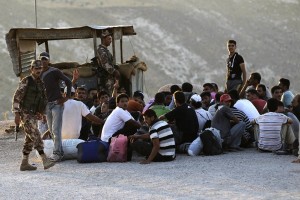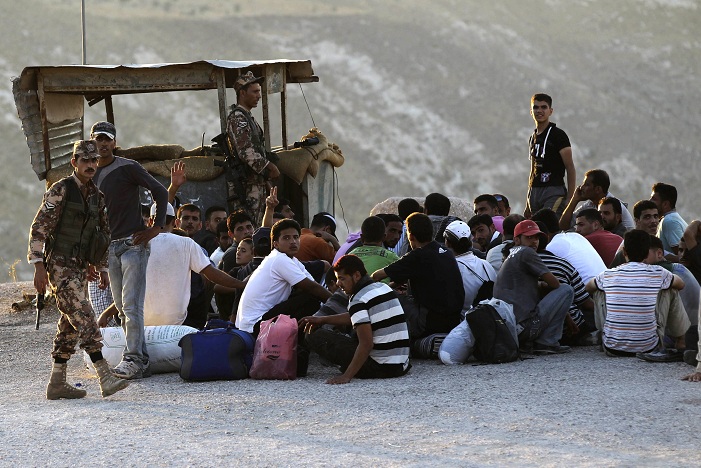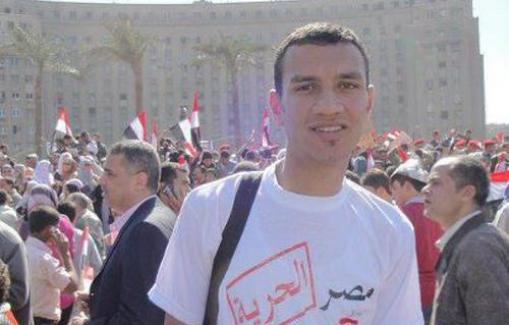
AFP PHOTO/KHALIL MAZRAAWI
Mark Ward, Deputy Special Coordinator in the US State Department’s Office of Middle East Transition, was in Cairo on Monday for a visit, meeting Syrian opposition figures currently based in Egypt.
Ward, who oversees non-lethal US assistance to Syria, said that the Syrian opposition continues to put pressure on the US and other donors to continue pumping assistance into the country as death numbers due to the armed conflict continue to rise.
The United States is currently the biggest donor of aid to the Syrian opposition and Syrian civilians, having given approximately $365 million in aid, most of which is humanitarian.
The European Commission’s Directorate-General for Humanitarian Aid and Civil Protection (ECHO) has provided more than $248 million, while other European and Arab countries have also contributed to the humanitarian relief effort.
However, the US also provides “non-humanitarian” aid, which includes training on issues including governance and equipment for the opposition.
“Someday this crisis will end and they will have to know how to talk to a community and set priorities,” said Ward.
Ward estimated that around 2.5 million Syrians inside the country need food and that the US, working through NGOs, has fed 1.5 million Syrians. The million without adequate access to food is due to difficulties NGOs face in accessing areas of the country where Bashar Al-Assad’s forces maintain greater control, such as the area around the western city of Hama.
Ward also discussed medical assistance, claiming that the US was providing assistance to 20 medical facilities in one part of the country.
Foreign aid to Syria will be forced to evolve if a regime change occurs in Syria. Ward said the US would provide cash to Syrian communities to encourage rebuilding and attempt to reinvigorate the economy.
“The new government will present the agenda and we’ll support them,” said Ward. “The world will have to work together on larger projects,” he added, saying multilateral efforts in cooperation with the World Bank and the Gulf States would be necessary to rebuild infrastructure, schools, and larger structures.
The United Nations High Commissioner for Refugees provides support for Syrians in Egypt. Ward stressed that while Syrian refugees go through hardship in most of the countries to which they flee, Egypt has provided relatively high levels of support. “There are schools in Cairo that now have Syrian children,” said Ward, “and one of the most important things is to keep children in school.”
The United States Agency for International Development (USAID) estimates there are roughly 4 million Syrians in need of humanitarian assistance inside the country, with 2 million internally displaced persons. Approximately 713,485 Syrians have fled to neighbouring countries and around 14,375 are currently in Egypt.


